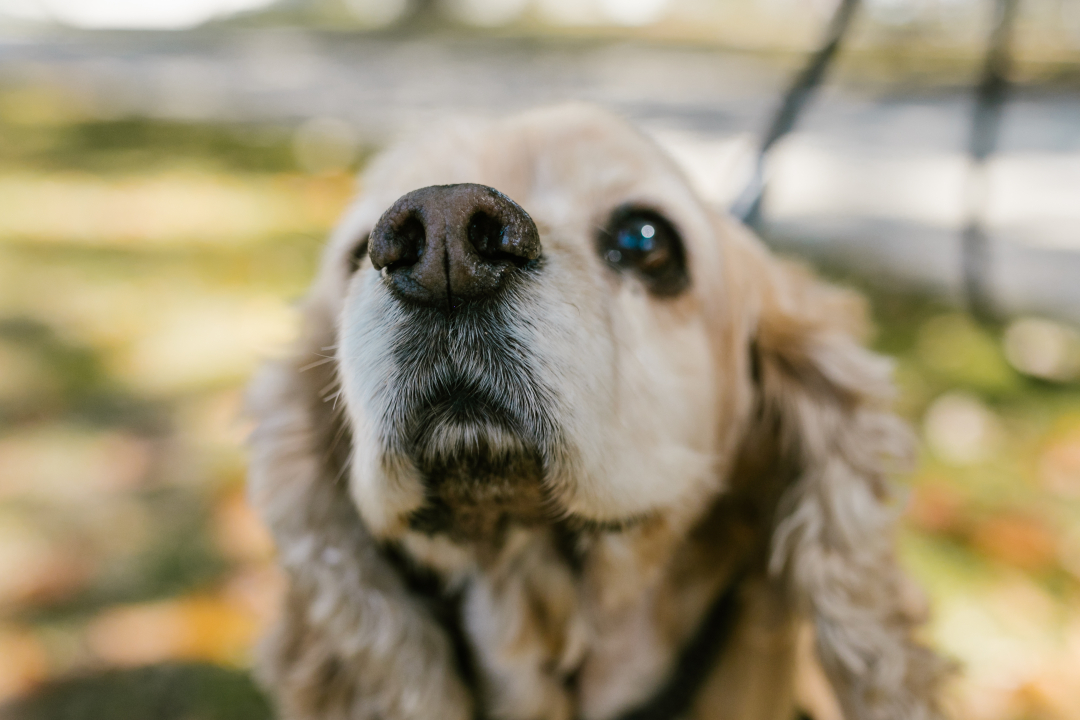
If your dog is sniffling or has a runny nose, there could be several possible reasons for his symptoms. Keep reading to find out what could be going on.
First of all, a dog’s nose is naturally wet. This allows dogs to pick up scents from the environment. So, if your dog’s nose is a little wet, this is actually a good thing. But if your dog’s nose is running or dripping, here’s what could be going on.
Heat
One of the most common reasons for a dog’s nose to run is because dogs, unlike humans, don’t sweat from their skin. Rather, they secrete sweat from their nose and the pads of their feet. So, the nasal discharge you’re noticing could be in response to heat.
Irritants
Another reason for your dog’s nose running could be exposure to a strong smell or irritant, such as perfume, incense, air freshener, smoke, dust, or household cleaning product. Keep in mind that your dog’s nose is low to the ground, so he can inhale many substances that you would not usually be exposed to. Given that your dog has a very strong olfactory sense, even the smallest change in her environment can trigger a runny nose.
Allergies
Seasonal allergies to mold, pollen, etc., could be the culprit in causing your dog’s nose to run.
Infections
Upper respiratory infections such as the common cold can cause your dog’s nose to drip. Like humans, bacterial and viral respiratory infections in dogs are contagious, so if your dog has a runny nose, you should consider isolating her for a couple of weeks.
Other causes for your dog’s runny nose
Other rare, but more serious causes of nasal discharge in dogs include a foreign body stuck in the nose, causing nasal discharge and/or bleeding. A dental problem such as a tooth abscess can also lead to nasal dripping in dogs. Growths like tumors and polyps are other potential causes for a dog’s nose running. Sometimes, a dog’s nose will run after he has ingested a toxic substance. For example, a toxin called brodifacoum, which is found in rat poison, can cause a hemorrhagic nasal discharge in dogs.
A runny nose in your dog is not a cause for immediate concern. Your dog’s nose could be running due to a mild and self-limited condition such as seasonal allergies or heat. The dripping will subside as soon as the irritant is gone or your dog has cooled off. If the nasal discharge is clear and not excessive, you can wait and watch to see if it goes away on its own.
However, if your dog’s nasal discharge is bloody, colored (green, yellow, or white), or contains pus, you should take your dog to the vet for evaluation. If you notice other symptoms like sneezing, coughing, itching, swelling, fever, or lethargy, it’s best to ask your vet for advice. Also, if your dog has long-term or severe nasal discharge, it could indicate an underlying health issue and should be investigated by the vet.
If your dog has a mild runny nose with clear discharge and no other symptoms, it could be the common cold or allergies. In this case, you can just let the illness runs its course. As mentioned, you should consult a vet for bloody or discolored discharge or a runny nose with drip that contains pus.
If your dog appears to have allergies that are causing runny nose and leaving him uncomfortable, your vet can offer treatments to keep your dog more comfortable during allergy season. If allergies are the underlying cause, you will likely notice other symptoms like sneezing, coughing, and itching. Reading health tips for dogs can help you recognize common doggy illnesses.